Thanks to its welcoming shores and crystal-clear waters, stunning scenery, dynamic culture, and relaxed way of life, an increasing number of British people are leaving behind the drearier climate of their country for the sunnier climes of Portugal.
The Portuguese Agency for Integration, Migration, and Asylum reported that an all-time high number of foreigners relocated to Portugal in 2023, marking a rise of 130 percent compared to the previous year.
It comes as no surprise that destinations such as the Algarve enjoy approximately 300 sunny days annually.
Currently, more than one million foreigners reside in Portugal (accounting for 10 percent of the population), and over the past five years, this number has nearly doubled.
The British rank as the fourth most common group following Americans, Brazilians, and French, and there are several factors contributing to this growing popularity.
With the cost of living As the crisis continues to impact the UK, the considerably lower living expenses and property prices in Portugal compared to those in the United Kingdom are among the factors fueling interest in moving to the country.
It feels warm and secure, with English commonly used. Additionally, it boasts a low rate of violence. crime ranked as one of the least expensive in Europe — and the Portuguese healthcare system is also quite affordable.
In January, Spanish Prime Minister Pedro Sánchez stated that he was contemplating increasing taxes twofold for British individuals and other non-EU residents.
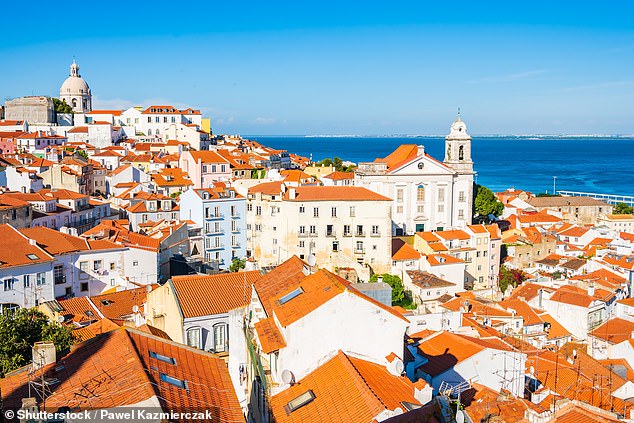
On the contrary, Portugal has actively sought to draw in retirees, entrepreneurs, remote workers, and startups.
Whether you're dealing with visas, taxes, or finding employment, we've put together a comprehensive guide for relocating from the UK to Portugal and settling into your new life there.
Visas
Following the official conclusion of Brexit on December 31, 2020, individuals who are British citizens and were not previously registered as Portuguese residents have been considered non-EU nationals.
The maximum allowed duration of stay in the country without a visa is up to 90 days within an 180-day period.
Nevertheless, relocating to Portugal is quite simple, as several visa alternatives are offered.
'Iain Begg, the Sales Manager for Vale do Lobo at Savills, states that the Golden Visa program remains robust and active, focusing on capital investments in eligible projects instead of real estate purchases.'
It provides unrestricted entry into the Schengen area with just a minimal requirement to reside in Portugal for a few weeks annually.
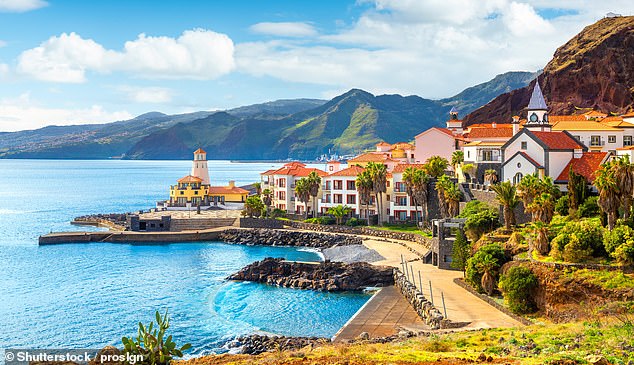
The D7 visa is among the more favored options, designed for individuals who have a passive income of at least €850 (£712) each month starting from 2025. In contrast, the D2 visa applies to people planning to invest or start a business in Portugal or work independently within the country. Meanwhile, the D8 visa serves as the ‘Digital Nomad’ visa intended for those employed overseas.
We suggest seeking professional guidance to find the most suitable visa option for you. According to a recent study conducted by SavILLS, Lisbon ranked fifth and the Algarve placed ninth among global locations favored by executive nomads.
Job opportunities
Christina Hippisley states that 'In January 2025, Portugal’s unemployment rate fell to 6.2 percent, marking its lowest point in over two years.'
The employment scene is bustling. English is commonly used in Portugal, and the development of the nation’s digital framework has fostered an inviting environment for digital nomads and remote professionals.
Portugal specifically presents job openings tailored for those who speak English as their first language.
The need for language instruction is consistently high; for instance, language institutes frequently seek out English teachers.
Moreover, a robust tourism and hospitality sector in the country implies that tour operators, hotels, resorts, and related businesses seek candidates with proficient English language communication abilities.
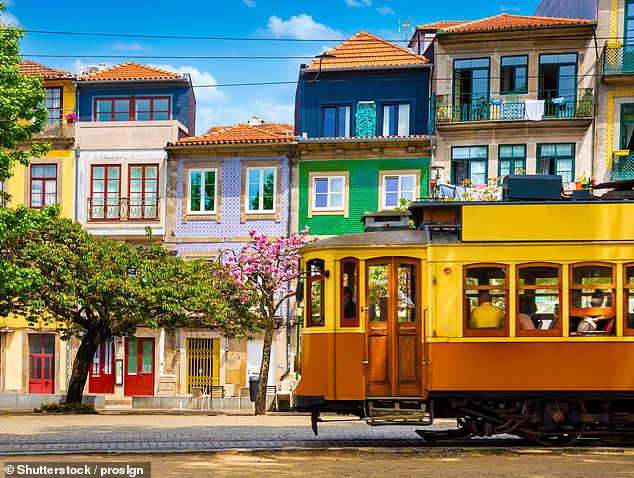
The thriving housing market presents new jobs in this area as well, whereas IT and technology companies, which mostly operate in English, look for individuals who speak English.
Job opportunities abound, particularly in the technology sector, where Lisbon has emerged as a significant center," notes Marta Espírito Santo from Quintela & Penalva, who are associated with Knight Frank in Lisbon. "Additionally, many expats are starting their own ventures, thus generating more employment.
Setting up a business
Establishing a business is quite straightforward. The government encourages foreign investment and the establishment of new enterprises.
Marta Espírito Santo states, "The procedure is simple yet necessitates the involvement of a local attorney to guarantee adherence to the rules."
Christina Hippisley states that Portugal is actively promoting entrepreneurship by encouraging individuals to establish themselves within the country through programs like the D2 visa," she explains. "This type of visa links residency status directly to starting a profession or launching a company in Portugal. The Portuguese administration aims to draw talented people, and simplifying the process for both business establishment and obtaining residency is central to achieving this objective.
Education
'Iain from Savills states that education and child care costs are significantly lower here compared to places like the UK and Ireland.'
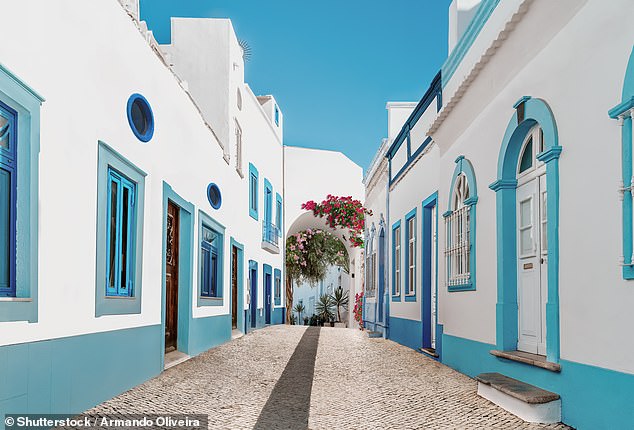
The public education system provides free afterschool programs for employed parents. Creches typically cost around €500/£419 each month, whereas international schools may begin at roughly €6,000/£5,023 annually during the early years, with fees increasing based on the child’s age and the specific institution.
Politics and culture
The government is dominated by two major political parties: the centre-left socialist-social democratic Socialist Party and the centre-right liberal-conservative Social Democratic Party.
Both advocate for the welfare state and a market economy while being supporters of European integration.
Portuguese people are renowned for their warmth and hospitality, where family and community hold great significance. Extended relatives and multiple age groups actively participate in each other’s social lives.
Although secular, Catholicism continues to be influential.
The region boasts a vibrant cultural legacy, encompassing soulful Fado melodies alongside a robust folkloric history. It also features dynamic celebrations and distinctive architectural trends spanning different eras.
Taxes
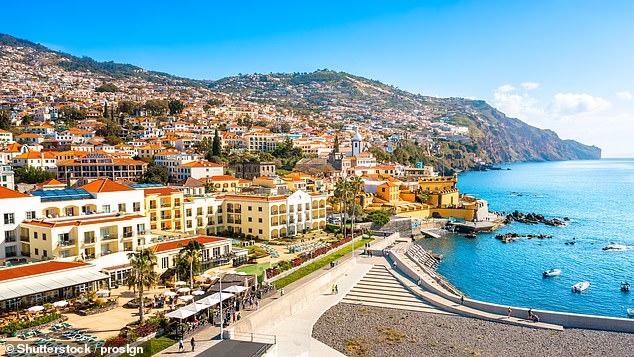
If you reside in Portugal, you won’t be taxed on the same income in both Portugal and the UK due to the double taxation agreement between these two countries.
If you reside in Portugal, you must report all worldwide income to the Portuguese government, regardless of its origin. Non-residents, however, are taxed solely on income generated within Portugal.
"Residents of Portugal will be taxed on their global income at graduated rates ranging from 13% to 53% for the year 2025," states Iain Begg.
The Non-Habitual Resident (NHR) program concluded in 2024, providing reduced tax rates to individuals who had not been tax residents of Portugal during the previous five years and who held eligible occupations.
'NH&R 2 introduced more stringent qualifying conditions. We suggest consulting an expert in this area for the most reliable guidance.'
Cost of living
In general, everyday life in Portugal tends to be more budget-friendly compared to the UK, according to Christina Hippisley. She also notes that the cost of living can differ depending on the area within Portugal.
According to Numbeo A three-course dinner for two people would cost approximately €45/£38, a half-liter draft beer at a pub or eatery about €2.50/£2.09, a liter of milk roughly €0.94/79p, a kilo of tomatoes around €2.18/£1.83, and a single-use transit pass about €2/£1.67. Additionally, essential utilities for an 85 square meter apartment (including electricity, heating, cooling, water, and waste disposal) amount to around €115/£96 per month.
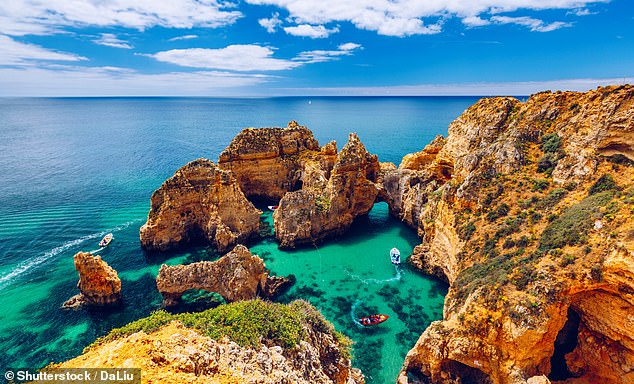
'Iain Begg notes that one can enjoy remarkably affordable meals and beverages of outstanding quality," he states. "However, the prices for housing are increasing whether you're purchasing or leasing, due to high demand exceeding available stock and insufficient new constructions."
'A unexpected expenditure is car costs, as import taxes increase prices; however, conversely, vehicles often maintain their value more effectively.'
Retirement and pensions
With its low cost of living, warm climate and a thriving expat community in areas such as the Algarve, Portugal is particularly popular with retirees.
You can apply for your UK State Pension in Portugal. You must reach out to the relevant authorities. International Pensions Centre And finish completing an international claims form, then arrange for your pension to be directly deposited into a Portuguese bank account.
Since the UK and Portugal have a double taxation treaty, you will not face taxes on your pension income in both countries. Additionally, UK residents are permitted to purchase real estate in Portugal unrestrictedly, catering to various needs such as permanent residence, rental purposes, or vacation stays.
As a general guideline, renting a home tends to be approximately 27 percent less expensive and buying property is about 45 percent more affordable compared to the prices in the UK. Nonetheless, both rental and purchase expenses may fluctuate significantly.
Although major cities such as Lisbon might not come as a surprise for being considerably pricier compared to rural regions, they have seen much sharper increases over recent years. Rental costs in both Lisbon and Porto have surged by more than 40 percent during this period as well.
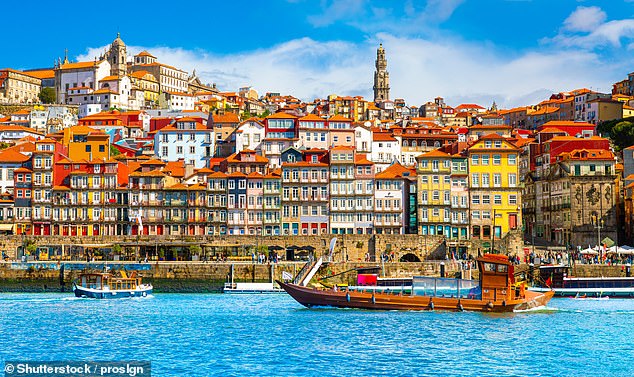
Based on data from Numbeo, renting a one-bedroom apartment in the city center costs around €936/£784, whereas outside the city center, it would be approximately €738/£618. Notably, the Algarve region stands out as particularly costly.
According to Iain, a three-bedroom villa could cost you around €2,500/£2,093 each month in rent. If you were considering buying the same villa, it might begin at approximately €1 million. Prices for both rentals and purchases tend to decrease when moving towards the western or eastern areas.
'Of course, there are apartments and townhouses to rent too. But due to a strong holiday-rental market there is a shortage of property for rent.'
Transferring your possessions from the UK to Portugal
Leaving the EU has made moving possessions from the United Kingdom to Portugal more complex compared to previous times.
To qualify for duty-free imports, you'll need a baggage certification known as a Certificado de Bagagem, which verifies that you've possessed your items for at least half a year. Employing a seasoned moving company could make this procedure easier.
Healthcare
Individuals who are officially residing in Portugal have access to the country’s national health service (SNS) and receive the same medical care as citizens of Portugal.
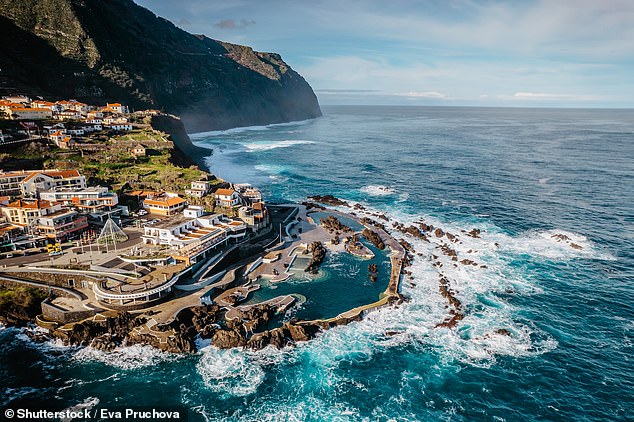
You obtain your health identification number (número de utente de saúde) for accessing medical services by registering at your nearby healthcare center (Centro de Saúde).
The Portuguese healthcare system requires payment of standard user fees (taxas moderadoras), which vary based on the specific services utilized.
A visit to a general practitioner might cost approximately €4.50/£3.77 to €7.50/£6.28, whereas a private consultation usually ranges from €20/£17 to €70/£59 or so.
A trip to the emergency room costs approximately €15/£13, whereas inpatient care ranges from €10/£8 to €20/£17 daily. Fee waivers apply to those who are unemployed or expectant mothers.
Privately provided healthcare offers excellent value and maintains a superior quality.
'We left the UK for Portugal — we hit the beach every week!'
Real estate agent Iain Begg relocated three years ago from London to the Algarve along with his spouse Laura and their two children, Isla who is nine years old, and Lochlan who is six.
Isla goes to an international school, whereas Lochlan attends a Portuguese public school.
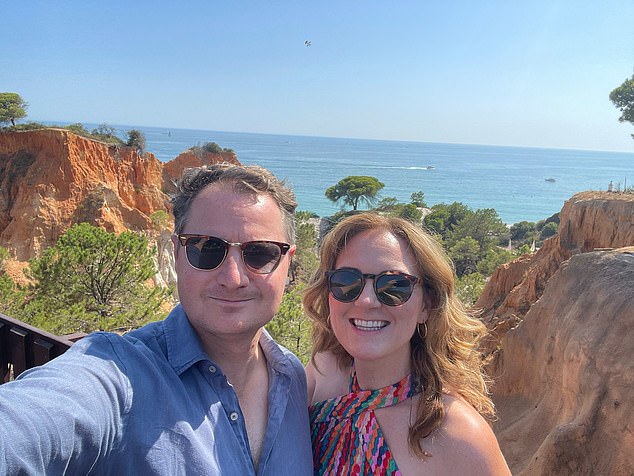
I enjoy playing paddle tennis and golf, and I spend my free time exploring different parts of the country," he states. "We really like discovering the regions of the Algarve and Alentejo, which lie directly north of the Algarve.
The coast of the Algarve varies greatly. In the west, you'll find picturesque cove beaches nestled below cliff faces, offering striking views. Meanwhile, the central and eastern parts of the Algarve feature flatter terraces along with the Ria Formosa nature reserve.
The Alentejo region is predominantly countryside and boasts breathtaking landscapes—quite distinct from the Algarve. It features magnificent lakes alongside charming historical towns worth visiting. Our family frequently goes camping at one of these lakes in the Alentejo several times each year, usually accompanied by around seven other households, allowing our children ample space to play freely. Besides this, we enjoy delightful meals together, explore various beaches during weekends, meet up with friends, or simply relax beside our swimming pool.
Most individuals communicate fluently in English, yet occasionally, language can still be an obstacle—particularly within cumbersome bureaucratic procedures. I am studying the language, though it’s certainly not one of the easier ones to master.
The summertime might get somewhat warm, but a consistent wind helps keep everything tolerable.
'Salaries locally tend to lag significantly compared to many parts of Europe, making it difficult to maintain a particular standard of living through domestic job opportunities. However, one could manage a modest lifestyle depending on your specific location within the region.'
'A typical weekly grocery bill for a family of four usually begins around €150/£126.'
Dining out can be significantly less expensive compared to the UK. You could enjoy a three-course meal for around €10 in certain eateries. Certainly, many upscale dining spots abound, even featuring Michelin-starred establishments. However, by choosing the appropriate venues, you can savor excellent meals without breaking the bank.
Read more.png)